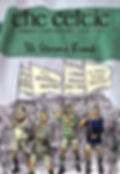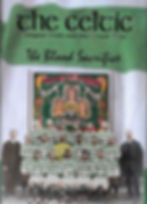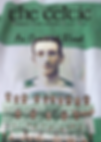

The Series

About The Series
The overall aim of the series of books The Celtic, the Glasgow Irish and the Great War is to give the Glasgow Irish community and the wider Scots Irish a visible presence in what will be, starting in August 2014, a five year long media event covering almost monthly, Great War commemorations.
The Celtic, Glasgow Irish and the Great War series covers the social and political history of the Glasgow Irish community from their arrival in Scotland over the course of the nineteenth century on up to the end of the Great War in 1919. The Great War experiences of the Glasgow Irish and Scots Roman Catholic community between 1914 and 1919 are highlighted and examined in detail. The major British and Irish political, social, military and footballing events over the course of the war are covered. All the subjects are examined through the prism of the Celtic Football and Athletic Club and the team’s sporting performances over the five football seasons of the Great War.
The books also make for interesting reading for anyone interested in Scottish and indeed British football over the period of the Great War.
They would also be of interest to people interested in the social history of Glasgow and the West of Scotland over the same period.
Although each book is part of a series they stand alone individually telling the story of The Glasgow Irish and the Great War in a particular period or season. Each book or the whole series can be purchased through https://www.theglasgowirish.com with the option of a unique dedication by the author Ian McCallum.
Book One - The Gathering Storms (View More Detail)
Book Two - The Storms Break - Season: 1914/1915 (View More Detail)
Book Three - The End of Innocence - Season: 1915/1916 (View More Detail) This Book is currently Out of Stock
Book Four - The Blood Sacrifice - Season: 1916/1917 (View More Detail)
Book Five - An Ocean of Blood (Season: 1917/1918) (View More Detail)
Book Six - The Never Ending Trials (Season: 1918/1919) (View More Detail)






